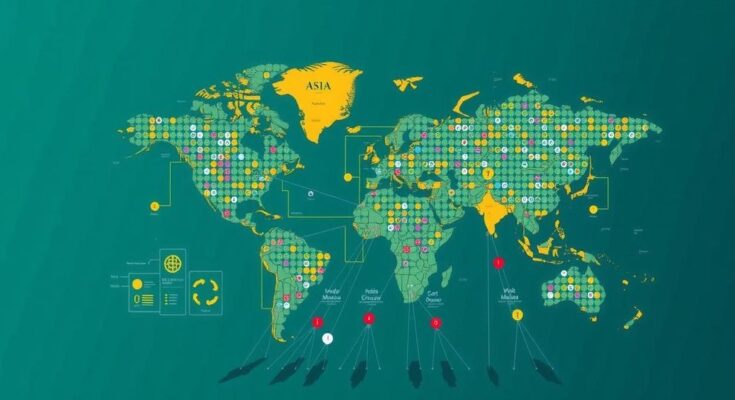Pakistan’s human rights situation is alarming, according to the UN Human Rights Committee, with concerns over political oppression, forced conversions, and violence against women and children. Children face severe deprivation of basic rights, and religious minorities suffer under misleading laws. A paradigm shift towards accountability and genuine commitment to human rights is essential for reform and improvement in the nation.
Pakistan’s human rights situation remains precarious, as highlighted in a recent UN Human Rights Committee review. Concerns include politically driven oppression, torture, limitations on religious practices, forced conversions, restricted freedom of expression, and violence against vulnerable groups, including women and children. Various factors, including government accountability and radical elements, have exacerbated these issues, leading to a pervasive culture of fear and systemic corruption within the justice system. The nation’s children face dire hardships, with millions lacking access to education and freedom, compounded by the alarming statistic that only 42% of children under five are registered at birth. Additionally, marginalized religious communities suffer under misused blasphemy laws, leading to increased incidents of forced conversions, far exceeding the reported cases. This climate fosters an environment where the state neglects its obligations and represses dissent, particularly in regions like KP and Balochistan. Sadly, the mindset that human rights are a mere concession prevents the establishment of robust, protective frameworks. It permeates institutions and social groups, including the judiciary, stifling the formation of progressive policies aimed at social development. As the focus remains narrowly on economic challenges, the state overlooks the interlinking of human rights and systemic reform necessary for true progress. To forge a fresh path toward a comprehensive human rights framework, the state’s approach must shift. Elected representatives should be held accountable for human rights violations, ensuring their policies align with international standards. Only through genuine empathy for its citizens can Pakistan aspire toward a future where constitutional protections transform from mere aspirations into a lived reality for all citizens.
The backdrop of this review involves Pakistan’s systemic challenges regarding human rights, highlighted by a multitude of ongoing abuses. Increasing reports of oppression highlight a landscape where individuals face severe limitations on their freedoms, particularly affecting women and children. Additionally, the coercive atmosphere engendered by governmental neglect and radical ideologies calls for urgent international scrutiny and reform to uphold fundamental human rights within the nation, emphasizing the need for accountability and systemic change.
In conclusion, Pakistan stands at a crossroads, burdened by a concerning human rights landscape clouded by oppression, violence, and neglect. The call from the UN Human Rights Committee serves as a clarion call for the nation to reevaluate its approach to human rights, advocating for accountability among elected officials and the establishment of policies that uphold fundamental freedoms. Only with heartfelt commitment can the state begin to heal and ensure that all citizens enjoy their rightful dignity and safety.
Original Source: www.dawn.com



